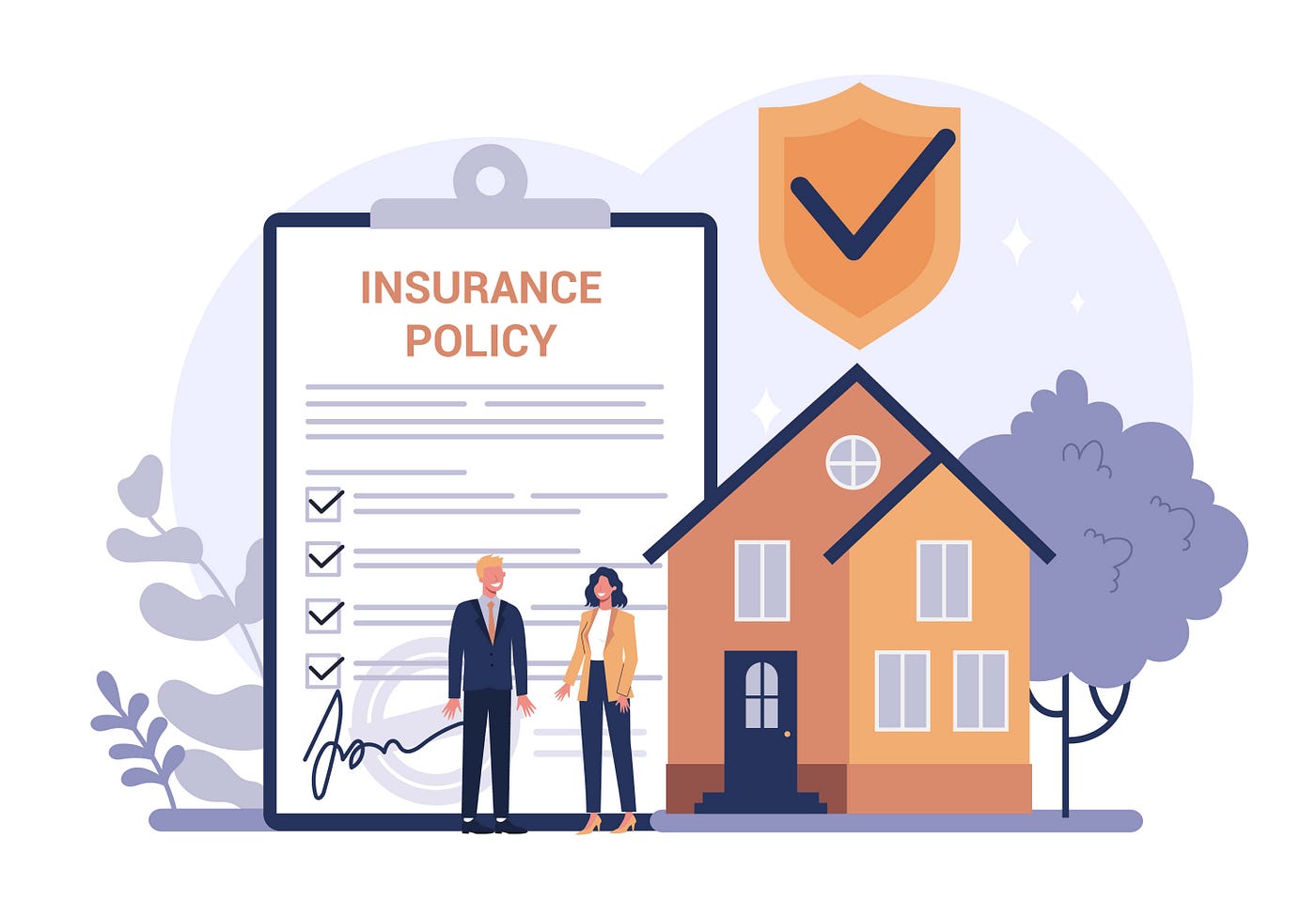

Finance
How To Stop Insurance Quote Calls
Modified: December 30, 2023
Looking to stop the constant barrage of insurance quote calls? Discover effective strategies to manage your finances and put an end to those irritating calls for good.
(Many of the links in this article redirect to a specific reviewed product. Your purchase of these products through affiliate links helps to generate commission for LiveWell, at no extra cost. Learn more)
Table of Contents
- Introduction
- Understanding Insurance Quote Calls
- The Impact of Insurance Quote Calls
- Steps to Stop Insurance Quote Calls
- Register with the National Do Not Call Registry
- Opt-out of Marketing Lists
- Be cautious while sharing your contact information
- Request to be removed from specific insurance company lists
- Screen your calls
- Report unwanted calls to authorities
- Consider using call-blocking services or apps
- Conclusion
Introduction
Insurance is an essential part of our lives, providing financial protection and peace of mind in the face of unexpected events. However, the process of obtaining insurance quotes can sometimes be overwhelming, with numerous calls from insurance companies bombarding us on a daily basis. These calls can be intrusive, time-consuming, and frustrating.
In this article, we will explore the phenomenon of insurance quote calls, understand their impact on our daily lives, and provide actionable steps to help you stop them. Whether you’re tired of the constant interruptions or simply want to regain control of your phone, we’ve got you covered.
Insurance quote calls typically occur when you have requested an insurance quote or expressed interest in purchasing an insurance policy. Insurance companies rely on these calls as a marketing strategy to attract potential customers and increase sales. While they may seem like a nuisance, it’s important to remember that these calls are a result of your initial engagement with insurance companies.
The purpose of insurance quote calls is to provide you with information about insurance policies, discuss coverage options, and ultimately convince you to purchase their product. However, the frequency and persistence of these calls can often become overwhelming. It’s not uncommon to receive multiple calls from different insurance companies throughout the day, disrupting our daily activities and causing frustration.
Aside from the inconvenience they cause, insurance quote calls can also have a negative impact on our mental well-being. Constant interruptions can lead to heightened stress levels, decreased productivity, and a general sense of annoyance. Additionally, these calls may also expose us to potential scams or fraudulent activities, making it crucial to exercise caution and protect our personal information.
Understanding Insurance Quote Calls
Insurance quote calls are a common marketing tactic used by insurance companies to reach potential customers and promote their products. These calls are typically initiated after you have requested an insurance quote or expressed interest in purchasing an insurance policy.
When you submit a request for an insurance quote, your contact information is often collected by the insurance company or their agents. This information may include your name, phone number, email address, and other relevant details. The insurance company then uses this information to contact you and provide you with the requested quote.
Insurance quote calls are typically conducted by sales representatives or telemarketers who are trained to articulate the benefits and features of their insurance products. They may ask you questions about your insurance needs, provide you with different coverage options, and try to convince you to purchase their policy.
It’s important to note that insurance quote calls are not inherently malicious or illegal. They are a legitimate way for insurance companies to market their products and connect with potential customers. However, the frequency and persistence of these calls can sometimes become overwhelming and intrusive.
Insurance companies often utilize advanced data analytics and customer segmentation techniques to identify individuals who are more likely to be interested in their insurance policies. This targeted approach helps them maximize their chances of making a sale and increase their conversion rates.
While insurance quote calls primarily focus on selling insurance policies, they may also serve as an opportunity for you to ask questions, clarify any doubts, and gather additional information about the policy you are interested in. It’s essential to use these calls wisely to make an informed decision and ensure that the insurance coverage aligns with your specific needs and requirements.
Insurance quote calls can originate from both large insurance companies and smaller, independent agents. It’s also common to receive calls from comparison websites or insurance aggregators that gather quotes from multiple insurance companies and present them to you for comparison.
Now that we have a better understanding of insurance quote calls, let’s delve into the impact they can have on our daily lives and explore effective strategies to stop them.
The Impact of Insurance Quote Calls
Insurance quote calls can have a significant impact on our daily lives, affecting our time, productivity, and overall well-being. Here are some of the key ways these calls can impact us:
1. Time-consuming: Insurance quote calls can be incredibly time-consuming. Each call can last several minutes, and when you receive multiple calls throughout the day, they can quickly eat up a considerable portion of your time. This can disrupt your daily routine, interrupt important tasks, and take away from valuable personal time.
2. Distraction: Insurance quote calls can be distracting, particularly when they occur during important meetings, work-related tasks, or family time. The constant ringing of your phone and the need to answer or decline calls can break your focus and hinder productivity.
3. Stress and annoyance: Continuous interruptions from insurance quote calls can lead to increased stress levels. The constant bombardment of calls can become irritating and frustrating, affecting your mood and overall well-being.
4. Exposure to scams: While most insurance quote calls are legitimate, there is always a risk of encountering scams or fraudulent activities. Some scammers may pose as insurance agents or use deceptive tactics to obtain personal information or financial details. It’s essential to be cautious and verify the authenticity of the calls to protect yourself from potential fraud.
5. Privacy concerns: Insurance quote calls often require you to provide personal information during the conversation. While reputable insurance companies handle your data responsibly, there is always a concern about unauthorized access or misuse of your information. It’s important to be mindful of the information you share and only provide it to trusted sources.
6. Disruption of peace and tranquility: Constant calls from unknown numbers can disrupt your peace and tranquility. Unanswered or declined calls can leave you wondering about the purpose of the call or feeling on edge as you wait for the next call to come in.
Overall, insurance quote calls can have a negative impact on your daily life, causing interruptions, stress, annoyance, and potential privacy concerns. Taking proactive steps to stop these calls can help alleviate these issues and restore a sense of control over your phone and time.
Steps to Stop Insurance Quote Calls
If you’re tired of receiving constant insurance quote calls and want to regain control over your phone, here are some actionable steps you can take to stop them:
1. Register with the National Do Not Call Registry: The National Do Not Call Registry is a free service provided by the Federal Trade Commission (FTC) in the United States. By adding your phone number to the registry, you can opt out of receiving telemarketing calls, including insurance quote calls. Visit donotcall.gov to register your number and reduce the number of unwanted calls you receive.
2. Opt-out of Marketing Lists: When you interact with insurance companies, make sure to check for any checkboxes or options that give you control over how your information is used. Look for opt-out options to prevent your contact information from being shared with third-party marketers or sold to other companies.
3. Be cautious while sharing your contact information: Exercise caution when providing your contact information, especially online or over the phone. Only share your details with trusted insurance companies or reputable websites. Be wary of offers that seem too good to be true or requests for unnecessary personal information.
4. Request to be removed from specific insurance company lists: If you are receiving frequent calls from a particular insurance company, contact them directly and request to be removed from their call list. Most companies have opt-out procedures in place and are obligated to honor your request.
5. Screen your calls: Use caller ID or call-blocking apps to identify calls from unknown or unwanted numbers. Let the calls go to voicemail and return calls only if necessary. Screening your calls can help you avoid answering unwanted insurance quote calls.
6. Report unwanted calls to authorities: If you continue to receive unwanted insurance quote calls, report them to the appropriate authorities. In the United States, you can file a complaint with the FTC or the Federal Communications Commission (FCC). Your reports can help enforcement agencies take action against violators.
7. Consider using call-blocking services or apps: Explore call-blocking services or apps that automatically filter out unwanted calls. These services use advanced algorithms and databases to identify and block spam and telemarketing calls. Research and choose a reputable service that fits your needs.
By following these steps, you can significantly reduce the number of insurance quote calls you receive and take back control of your phone. Remember, persistence is key, as it may take some time for the impact to be fully felt. Stay vigilant and proactive in managing unwanted calls to enjoy a more peaceful and uninterrupted phone experience.
Register with the National Do Not Call Registry
One of the most effective ways to stop insurance quote calls is by registering your phone number with the National Do Not Call Registry. The National Do Not Call Registry is a free service provided by the Federal Trade Commission (FTC) in the United States, and it allows consumers to opt out of receiving telemarketing calls, including insurance quote calls.
Here’s how to register with the National Do Not Call Registry:
1. Visit the official website of the National Do Not Call Registry at donotcall.gov.
2. Click on the “Register Your Phone” button on the homepage.
3. Provide the required information, including your phone number(s) and email address.
4. Verify your email address by clicking on the verification link sent to your inbox.
5. After verifying your email address, your phone number will be added to the registry and will remain on the list indefinitely, unless you choose to remove it.
Once your phone number is registered with the National Do Not Call Registry, telemarketers are legally required to stop calling you within 31 days, with a few exceptions. It’s important to note that the registry does not apply to calls from political organizations, charities, surveys, or companies with which you have an existing business relationship.
However, if you continue to receive unwanted calls after registering with the National Do Not Call Registry, you can file a complaint on their website. The FTC uses these complaints to identify and take action against companies that violate the registry’s rules.
It’s worth mentioning that the National Do Not Call Registry is specific to the United States. If you are located in another country, check if there is a similar service available for your region. Many countries have their own do not call registries or regulations designed to limit unwanted telemarketing calls.
By registering your phone number with the National Do Not Call Registry, you can significantly reduce the number of insurance quote calls you receive. This simple and convenient step empowers you to take control of your phone and enjoy a more peaceful and uninterrupted communication experience.
Opt-out of Marketing Lists
Another effective strategy to stop insurance quote calls is to proactively opt-out of marketing lists. When you interact with insurance companies, you may have the opportunity to control how your information is used for marketing purposes. By opting out, you can limit the chances of your contact information being shared with third-party marketers or sold to other companies.
Here are some steps you can take to opt-out of marketing lists:
1. Read the privacy policy: Before providing your contact information to an insurance company, carefully read their privacy policy. Look for details on how they handle customer information and whether they share it with third parties. If their policy doesn’t align with your privacy preferences, consider seeking insurance from a different company.
2. Uncheck marketing consent boxes: When filling out forms or applications, pay close attention to any checkboxes related to marketing communications. Many companies include pre-checked boxes that give them permission to contact you for promotional purposes. Take the time to uncheck these boxes if you prefer not to receive marketing calls or emails.
3. Verify opt-out procedures: If you have already provided your contact information to insurance companies, contact them directly to inquire about their opt-out procedures. They may have specific processes in place to remove your information from their marketing lists. Follow their instructions and be sure to ask for confirmation that your request has been processed.
4. Utilize privacy preferences: Some insurance companies provide customers with privacy preference centers, where you can choose the types of communications you want to receive. Log in to your account or contact customer support to update your preferences and opt-out of marketing communications.
5. Research and choose reputable insurance companies: Prioritize working with reputable insurance companies known for their commitment to customer privacy. Research their reputation and look for feedback from other customers regarding their marketing practices. Opting for companies with strong privacy standards can reduce the likelihood of your information being shared with third-party marketers.
6. Stay vigilant: Even after opting out, it’s important to be cautious when sharing your contact information in the future. Ensure that you are still actively managing your privacy preferences with each new interaction to prevent your information from being added to marketing databases without your consent.
By taking these steps to opt-out of marketing lists, you can significantly reduce your exposure to insurance quote calls. While it may not eliminate all calls, it will help you regain control over the marketing communications you receive and create a more tailored and personalized experience with the insurance companies of your choice.
Be cautious while sharing your contact information
To further minimize the number of insurance quote calls you receive, it’s important to exercise caution when sharing your contact information. Taking proactive measures to safeguard your personal details can significantly reduce the chances of unwanted calls. Here are some tips to help you be cautious while sharing your contact information:
1. Limit information sharing: Only provide your contact information when it is absolutely necessary. Be cautious about sharing your phone number, email address, or other personal details unless it is required for a specific purpose, such as obtaining an insurance quote or purchasing a policy.
2. Verify the legitimacy: Before sharing your contact information with any insurance company or website, verify their legitimacy. Research the company, read reviews, and ensure they have a legitimate and trustworthy reputation. Be mindful of phishing scams where fraudsters disguise themselves as insurance providers to collect personal information.
3. Consider using separate contact details: If possible, use a dedicated phone number and email address specifically for insurance-related inquiries and interactions. This way, if you start receiving unwanted calls, you can easily identify the source and take appropriate action.
4. Read privacy policies: Before providing any personal information, carefully read and understand the privacy policies of the insurance company or online platform. Look for details on how they handle and protect customer data, how long they retain it, and whether they share it with third parties. Companies with transparent and strong privacy policies are more likely to respect your contact preferences.
5. Opt-out of data sharing: When interacting with insurance companies, look for opportunities to opt-out of data sharing. Many companies provide options for you to choose whether your information can be shared with third-party marketers or affiliates. Selecting the opt-out option can help prevent your contact details from being widely shared.
6. Be wary of optional fields: When filling out forms or applications, be cautious about providing optional information. Consider whether the requested information is necessary for obtaining an insurance quote or policy. If not, it’s best to leave those fields blank to minimize the amount of data being collected about you.
7. Use secure online platforms: When submitting your contact information online, ensure that the website or platform you are using is secure. Look for “https” in the website’s URL, indicating that it has an SSL certificate to encrypt your data. Avoid entering personal information on unsecured or suspicious websites.
By being cautious and selective about sharing your contact information, you can significantly reduce the likelihood of receiving unwanted insurance quote calls. Taking these steps helps protect your privacy, minimizes potential risks associated with data sharing, and allows you to have more control over who contacts you.
Request to be removed from specific insurance company lists
If you find yourself receiving frequent insurance quote calls from a specific insurance company, you have the right to request that they remove your contact information from their call list. Many insurance companies have opt-out procedures in place to accommodate such requests. Here’s how you can go about requesting to be removed:
1. Locate the contact information: Find the contact details of the insurance company that is calling you. This information is typically available on their website or in the call notes provided during the call. If you can’t find their contact information, try to remember the name of the company and do an online search to find their official website or contact details.
2. Place a call or send an email: Reach out to the insurance company’s customer service department through their provided contact channels. You can call their customer service line or send an email explaining your situation and requesting to be removed from their call list.
3. Provide necessary information: When contacting the insurance company, be prepared to provide details that will help them locate your information in their system. This can include your full name, phone number, and any other information they may request to verify your identity and locate your account.
4. Be polite and firm: When communicating with the insurance company, maintain a polite and firm tone. Clearly express your desire to be removed from their call list and request confirmation that your request has been processed. Avoid getting into arguments or engaging in unnecessary discussions.
5. Document your communication: Keep a record of your communication with the insurance company. Note down the date, time, and details of your conversation or email exchange. This documentation can be useful in case future issues arise or if you need to file a complaint.
6. Follow up if necessary: If you continue to receive calls from the insurance company after requesting to be removed, reach out to them again and express your dissatisfaction. Reference your previous communication and request further action to resolve the issue. If the problem persists, consider filing a complaint with the appropriate regulatory authority.
7. Consider escalating the matter: If the insurance company does not address your request or continues to call you after you have opted out, consider escalating the matter. Contact the regulatory agency overseeing the insurance industry in your country or state and file a complaint. They can investigate the issue and take appropriate action against the company if necessary.
By taking the proactive step of requesting to be removed from specific insurance company call lists, you can minimize or even stop the frequent insurance quote calls you receive from them. It allows you to assert your preferences and exercise control over the communications you receive, making your phone experience more pleasant and focused on your needs.
Screen your calls
One effective way to manage and reduce the number of insurance quote calls you receive is by screening your calls. By using caller ID or call-blocking apps, you can identify and filter out unwanted calls, allowing you to prioritize and respond to important calls while avoiding those that are unnecessary or unwanted.
Here are some steps you can take to screen your calls effectively:
1. Enable caller ID: Ensure that your phone’s caller ID feature is activated. This will display the incoming phone number or contact name, if available, on your phone’s screen. It allows you to quickly assess the legitimacy and relevance of the call before answering.
2. Don’t answer unknown numbers: If you receive a call from an unknown number, let it go to voicemail instead of answering immediately. Legitimate callers will leave a message, and you can decide whether it warrants a callback. If the call is from an insurance company you are not interested in, you can avoid engaging with them altogether.
3. Create a contact list for known numbers: Save the contact information of important people, such as family members, friends, and important organizations, in your phone’s contact list. This allows you to easily differentiate between known and unknown numbers when calls come in.
4. Use call-blocking apps: Install call-blocking apps that can automatically identify and block spam or unwanted calls. These apps use a database of known spam numbers or suspicious callers to filter out unwanted calls before they even reach your phone. Research and choose a reputable app that suits your needs.
5. Block individual numbers: If you consistently receive calls from a specific number related to insurance quote calls, use your phone’s built-in features or call-blocking apps to block that number. This will prevent future calls from that number from reaching your phone and save you the time and hassle of dealing with them.
6. Consider using a separate phone number: If you frequently interact with insurance companies or comparison websites for quotes, consider using a separate phone number dedicated to these interactions. This allows you to keep your personal phone number private and easily spot and manage insurance-related calls.
7. Regularly review blocked numbers: Periodically review the list of blocked numbers on your phone or call-blocking app. It’s possible that legitimate numbers may be blocked accidentally or that new spam numbers have emerged. You can adjust your blocking settings as needed to ensure you are only blocking unwanted calls.
Screening your calls gives you the power to choose which calls you engage with and helps you avoid unnecessary interruptions from insurance quote calls. By implementing these techniques, you can reclaim your time and prioritize meaningful conversations while effectively managing unwanted calls.
Report unwanted calls to authorities
If you continue to receive unwanted insurance quote calls despite your best efforts to stop them, it’s important to report these calls to the appropriate authorities. Reporting unwanted calls serves multiple purposes, including alerting regulatory agencies to potential violations and aiding in the enforcement of telemarketing regulations. Here’s how you can report unwanted calls:
1. Document call details: Keep a record of the unwanted calls you receive. Take note of the date, time, and phone number displayed on your caller ID. This documentation will be crucial when filing a complaint and providing evidence of the unwanted calls.
2. Identify the appropriate authority: Research the appropriate regulatory agency responsible for overseeing telemarketing and unwanted calls in your country. In the United States, for example, the Federal Trade Commission (FTC) and the Federal Communications Commission (FCC) handle complaints related to unwanted calls. Check their websites to find the specific process for reporting unwanted calls.
3. File a complaint: Follow the instructions provided by the regulatory agency to file a complaint regarding the unwanted calls. Provide as much detailed information as possible, including the phone number, date and time of the call, and any relevant details about the nature of the call.
4. Cooperate with investigations: If the regulatory agency decides to investigate your complaint, cooperate with them and provide any additional information or evidence they request. This can include call recordings, voicemails, or any other documentation related to the unwanted calls.
5. Consider reporting to your phone service provider: In addition to filing a complaint with the regulatory agency, you can also report the unwanted calls to your phone service provider. They may have their own mechanisms in place to address unwanted calls and can take action to block or investigate the reported numbers.
6. Stay informed: Keep yourself updated on any developments or actions taken by the regulatory agency regarding your complaint. This information may be useful if you encounter similar issues in the future or if you need to provide additional evidence.
Reporting unwanted calls not only helps in taking legal action against offenders but also contributes to the overall efforts in combating spam and telemarketing abuse. It aids regulatory agencies in identifying patterns, enforcing regulations, and protecting consumers from fraudulent or misleading telemarketing practices. By reporting unwanted insurance quote calls, you play an active role in creating a safer and more secure communication environment for yourself and others.
Consider using call-blocking services or apps
When dealing with persistent insurance quote calls, one effective solution is to consider using call-blocking services or apps. These tools are designed to identify and block unwanted calls, providing an extra layer of defense against spam, telemarketing, and other nuisance calls. Here are some important considerations and steps to help you make the most of call-blocking services or apps:
1. Research and choose a reputable service: There are many call-blocking services and apps available, so take the time to research and choose one that best fits your needs. Read reviews, compare features, and ensure that the service has a good reputation for effectively blocking unwanted calls.
2. Understand the features: Different call-blocking services and apps offer various features beyond basic call-blocking. These features may include automatic spam call detection, customizable block list, community-based call reporting, and more. Understand the features and settings that are provided and adjust them to suit your preferences.
3. Enable automatic call-blocking: Ensure that the call-blocking service or app is set to automatically block known spam or unwanted numbers. This will save you the hassle of manually blocking each unwanted call that comes through.
4. Update your block list: Regularly update and maintain your block list to include any new numbers that you want to block. You can manually add numbers to the block list or rely on automatic updates from the call-blocking service or app’s database of known spam numbers.
5. Stay informed about call-blocking updates: Keep the call-blocking service or app up to date with the latest software updates and database updates. This ensures that you have the best protection against new and emerging spam numbers.
6. Be aware of any potential false positives: While call-blocking services strive to filter out unwanted calls accurately, there may be instances where legitimate calls are mistakenly blocked. Regularly review your blocked call list to check for any numbers that should not be blocked and add them to your allowed list if necessary.
7. Consider feedback and community reporting: Some call-blocking services allow users to provide feedback or report unwanted numbers. Participate in this community feedback system, as it helps strengthen the call-blocking service’s capability to identify and block unwanted calls.
Using call-blocking services or apps can provide you with an additional layer of protection against insurance quote calls and other unwanted calls. By leveraging advanced algorithms and community-based reporting systems, these tools can significantly reduce the number of nuisance calls you receive, allowing you to have a more peaceful and interruption-free phone experience.
Conclusion
Insurance quote calls can be a frequent and intrusive part of our daily lives, but there are steps you can take to stop them and regain control of your phone. By implementing the strategies discussed in this article, you can minimize the number of insurance quote calls you receive and enjoy a more peaceful and uninterrupted communication experience.
Registering with the National Do Not Call Registry is a fundamental step in stopping unwanted calls. It allows you to opt out of telemarketing calls, including insurance quote calls, and provides a legal framework for enforcing compliance. Additionally, opting out of marketing lists when interacting with insurance companies, being cautious while sharing your contact information, and requesting to be removed from specific insurance company lists can further limit the calls you receive.
Screening your calls using caller ID, call-blocking apps, and blocking individual numbers helps you identify and filter out unwanted calls effectively. It allows you to prioritize important calls while minimizing interruptions from insurance quote calls. Furthermore, reporting unwanted calls to regulatory authorities and your phone service provider contributes to the fight against spam and telemarketing abuse, creating a safer and more secure communication environment for everyone.
Remember to stay informed about call-blocking services and apps that can help prevent unwanted calls, and consider using them as an additional layer of defense. Regularly update your blocking settings and maintain a clear understanding of how these tools work to optimize their effectiveness.
In conclusion, by combining these strategies and taking a proactive approach to manage unwanted insurance quote calls, you can significantly reduce their frequency and reclaim your phone for the meaningful connections and conversations that matter most to you.














